Favorite Lists or Spreadsheets for Building a House? Need All Steps.
Jeff Smith
last year
Featured Answer
Comments (33)
Charles Ross Homes
last yearJeff Smith
last yearRelated Discussions
Construction Budget, Cost Breakdown & New Home Construction List
Comments (12)Hi, ideamom...yup, we sure do have the same taste! :) Thanks for your kind words, never did I imagine that I'd ever build on a property like this and I guess it will seem more real when something happens like BREAKING GROUND (impatient sigh). :-p Anyway, don't feel like you have to "match" all the light fixtures in your home if you like more than one collection, I think it's part of what makes a custom home "custom" (JMHO). After my DH and I discussed lighting, we decided to use Belcaro in our entry/foyer, gallery, terminus, living and dining room. For our master suite, we are going with Bellasera. We also found another line for the kitchen, nook and great room, it's the R.A.M. Lighting Monaco Series. For the rest of the home, it's still TBD, but I think each bedroom suite will be different, as well as the wine room, game room, home theater and office. Anyway, you can see our lighting selections on our home-building website at VineyardAvenue.com (just click on "Decor"). I'll be adding much more to the site as the time progresses! Here is a link that might be useful: Our lighting selections...so far!...See MoreBuilding a Craftsan Style Home--List of Interior Features?
Comments (14)Renovator8: That's a truly gorgeous kitchen. I'm curious if you could give me an approximation for per sq footage costs on building an authentic but not greene and greene style craftsman. I just want to know if we can afford enough house to make it worth it. I don't need a huge house but I would like 2500 sq ft at least with a finished basement. The house I'm currently in love with since it would work in a city or a country lot is 3900 Sq Ft plus a 600 sq ft bonus room. I'm pretty sure I can't afford to build it but...I would like to know. I would do slightly different trim and lighting but I do like it... http://www.melaragno.com/MelaragnoResidence.htm...See MoreBuilding a new home start of next spring, gathered a list of things to
Comments (55)I agree you don't see many because the styles clash. The house you posted above is what I sometimes refer to as a builder show house... They built it to show clients how many different things they no how to do all on one project. This isn't the worst example... but look at all the things that don't quite go... There's brick, and stone, and shakes. One column looks like all brick base, and two look almost like stone base (can't tell for sure). There are windows with arched transoms. and windows with squared transoms. There are wooden truss looking beam features in each gable, but no other wood on the entire house. I don't know... its just kind of a mish mash for me. I'm sure someone smarter than me could find other oddities....See MoreBuilding dream home, architect wants cost plus 12%, need advice.
Comments (66)I built my custom home and design it as well. It was my first and I was very green. My advise is make sure you know what you want and what you are willing to pay for. Learn who your builder is and do not trust too much when they start tell you what you (should) want. I learned the hard way and two months into the build project I had to practically live at the construction site. The builder did not like it much but it was my house and not his so I did not care. We budded heads when he kept defaulting to "his standards". He was good for the big strokes but when it came down to the details he failed. Pick out as many items as you can upfront so you can get a very good idea of cost. We went $50k over budget and that was because the builder's defaulting to "his standards" at the budget discussion table that I was not aware of until we were into the build project. I initially took his advise on some designing, I wish I didn't. When I became the wiser I starting taking things back in my own hands. And I am speaking of selections like cabinetry, windows, flooring tile, countertops doors, decking materials and much more finishes. I had a budget I wasn't suppose to go over and he, the builder, did not make it clear as to what we were going to get within that budget. I do not regret that I went over. And I tell you if I had another $50k laying around I would have used it up....See MoreJeff Smith
last yearJeff Smith
last yearcpartist
last yearJoseph Corlett, LLC
last yearRTHawk
last yearCharles Ross Homes
last yearbry911
last yearbry911
last yearlast modified: last yearmillworkman
last yearJeffrey R. Grenz, General Contractor
last yearCharles Ross Homes
last yearJeff Smith
last yearJeff Smith
last yearJeffrey R. Grenz, General Contractor
last yearCharles Ross Homes
last yearJeff Smith
last yearJeff Smith
last yearCharles Ross Homes
last yearJeff Smith
last yearCharles Ross Homes
last yearJeffrey R. Grenz, General Contractor
last yearJeff Smith thanked Jeffrey R. Grenz, General ContractorJeff Smith
last year
Related Stories
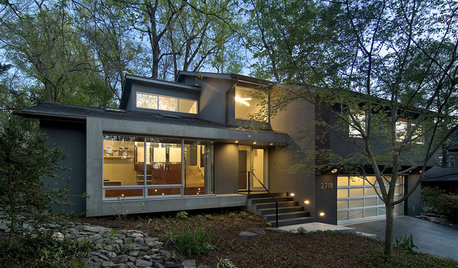
REMODELING GUIDESStep Up Your Split-Level Spec House
Three off-the-rack split-level homes, three dramatically different renovations. Let your favorite be your guide
Full Story
REMODELING GUIDESSo You Want to Build: 7 Steps to Creating a New Home
Get the house you envision — and even enjoy the process — by following this architect's guide to building a new home
Full Story
FUN HOUZZHow to Build a Really, Really Small House
A four-minute film holds the magnifying glass up to a dollhouse collector smitten with all things small
Full Story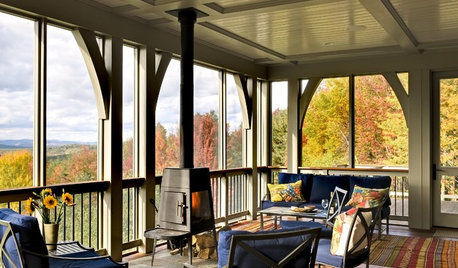
Houzzers Say: A Wish List for the Entire House
10 dreamy suggestions to help a home meet all of your present and future needs
Full Story
FRANK LLOYD WRIGHTStep Inside a Frank Lloyd Wright House Saved From Demolition
The historic Phoenix property is now part of the architect’s school at Taliesin, where it will be used as a design lab
Full Story
TRANSITIONAL HOMESMy Houzz: Australian Family Builds Its ‘20-Year House’
Designing from scratch enables a Melbourne couple to create a home their kids can grow up in
Full Story
DREAM SPACESStep Inside a Luxurious Pool House and Spa
This Montana pool house takes inspiration from Japanese design and the beauty of its surroundings
Full Story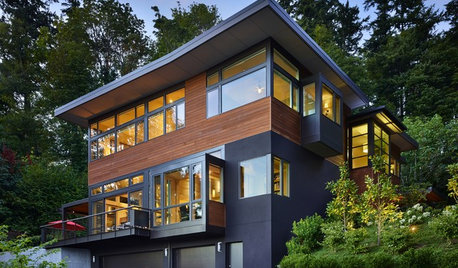
REMODELING GUIDES6 Steps to Planning a Successful Building Project
Put in time on the front end to ensure that your home will match your vision in the end
Full Story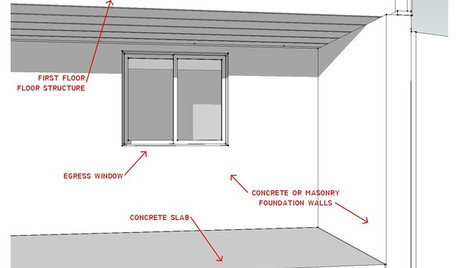
REMODELING GUIDESKnow Your House: The Steps in Finishing a Basement
Learn what it takes to finish a basement before you consider converting it into a playroom, office, guest room or gym
Full Story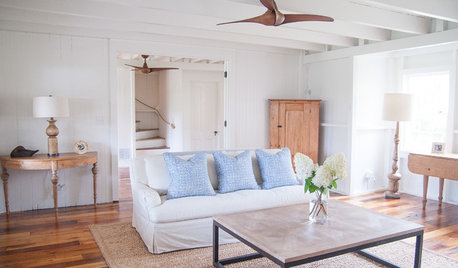
HOUZZ TOURSHouzz Tour: A Connecticut Beach House Builds New Memories
Extensive renovations make an 8-bedroom summer home ready for a family and many guests
Full Story



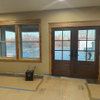



Charles Ross Homes